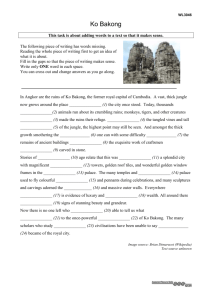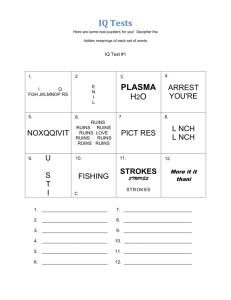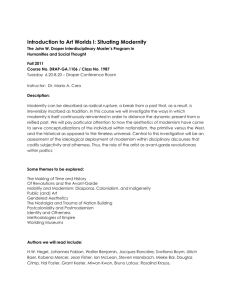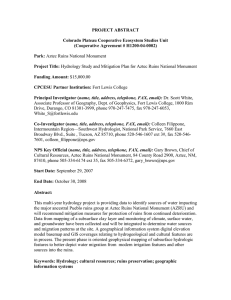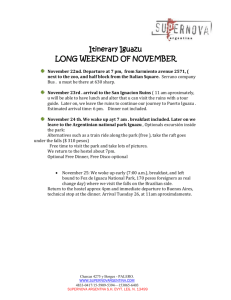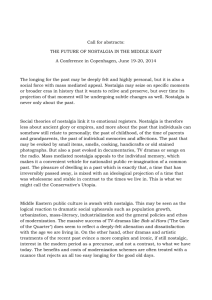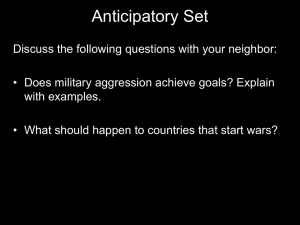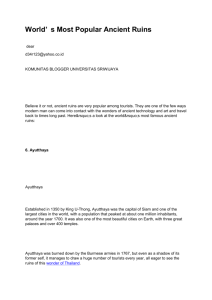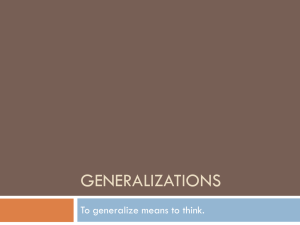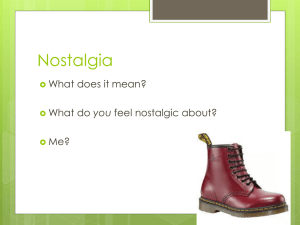Andreas Huyssen
advertisement
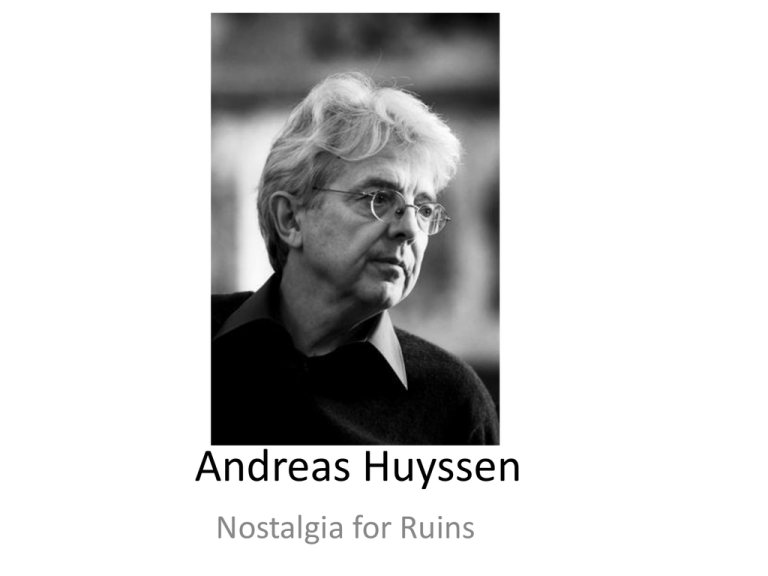
Andreas Huyssen Nostalgia for Ruins cultural amnesia museumised by theme parks memory has become a cultural obsession of monumental proportions real can be "mythologized” while mythical can create strong effects of reality Avant-garde: collective phenomena Dada movement, futurism, surrealism, situationists = radical futuristic UTOPIA = hope for radical political changes (both left & right) = manifestos marginalized artists, writers, composers, thinkers opposed to mainstream commercial values the formative years of modernism rejected artificially synthesized mass culture = industrialization manufactured forms = new consumer culture Greenberg in the 30’s Mainstream media = direct product of Capitalism = substantial industries Manufacturing profit-fixated motives ≠ ideals of true art kitsch: phony, faked, mechanical culture -- pretended to be more than they were Rosenburg, progressive culture in the late 60’s • • • ceased to fulfill its former adversarial role “avant-garde ghosts” ↔ changing mass culture profession = pretense of overthrowing it Hand-drawn still from Kentridge animation, 1989 Kuitca, El Momento, 1989 Architecture ↔ imaginary urban landscapes urban imagination ≠ fantasy permanent residents, immigrants, tourists Proliferation of museums ↔ Memory boom MACBA Jewish Museum “Melancholy is as palpable as a tangible reality.” Politics of memory = social/ethic conflicts Battle of historical memory Collective memory not working Memory hierarchies = bad idea Holoaust memory -- slavery memory Discourses: reinforce Historical Memory Modernity = Politicised religious fanaticism Past ≥ future Past nostalgic desire = desire for somewhere else Nostalgia as distorted utopia Ruins = desires of past Nostalgia: Homesickness longing for something far away or long ago negative coding in modernity Utopia in reverse Ruins: Past as both present & unaccessible Nostalgic trigger Ruins: the imagined present of a past that can now only be grasped in its decay. Real ruins of different kinds function as projective screens for modernity’s articulation of temporalities and for its fear of and obsession with the passing of time… Necessary Utopias Not obsessed with past Organize the future The end
